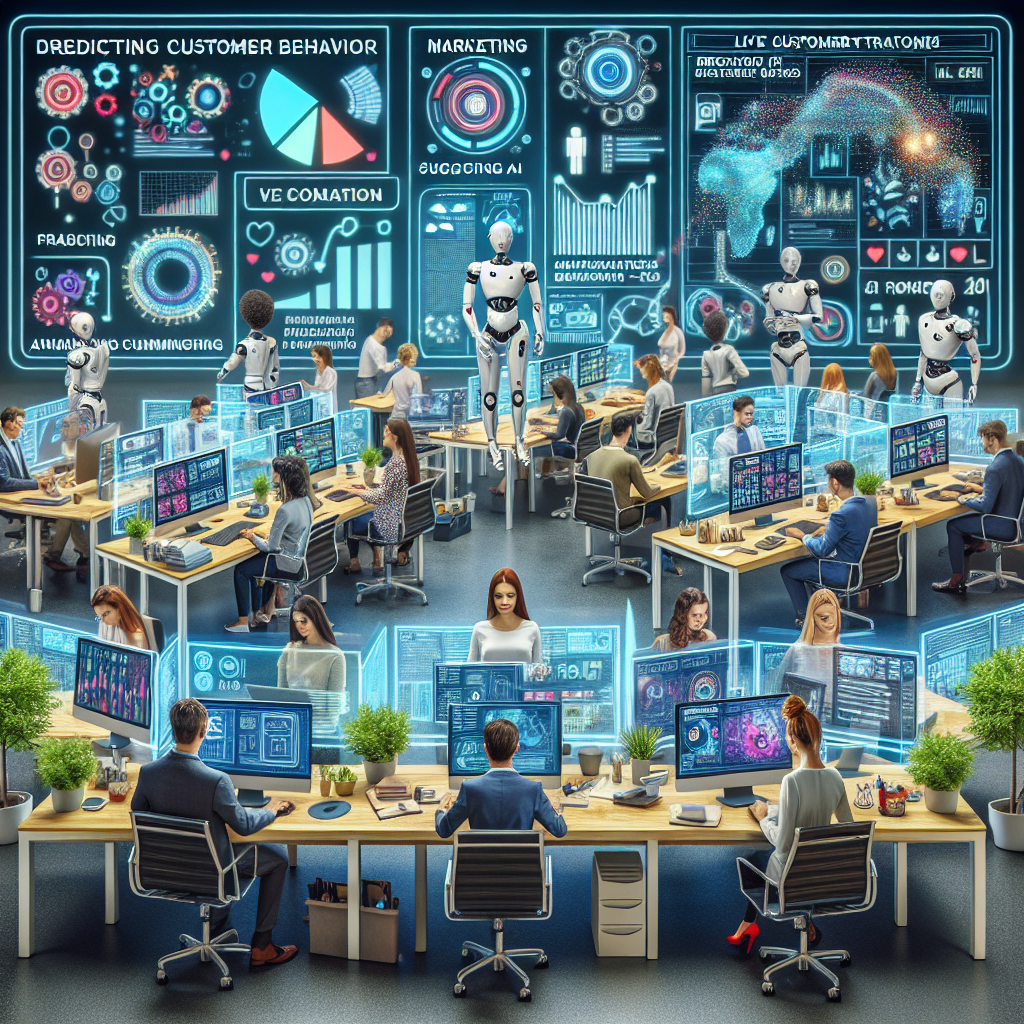How AI is Transforming Small Business Marketing in 2025

How AI is Transforming Small Business Marketing in 2025
Artificial intelligence (AI) has been a buzzword in tech and business for years, but in 2025, its impact on small business marketing has never been clearer. The capabilities of AI have evolved beyond simple automation and now empower even the leanest teams to compete with much larger rivals. Here’s how AI is revolutionizing marketing for small businesses in 2025.
1. Personalization at Scale
One of the most significant shifts AI brings to small business marketing is the ability to deliver truly personalized experiences. Using advanced machine learning algorithms, AI tools analyze customer data in real time—behavior patterns, purchase history, even social media engagement. This means that even businesses with small marketing teams can tailor their messages, offers, and product recommendations to individual customer segments—or even individuals.
For example, AI-driven email marketing platforms now automatically adjust content, send times, and subject lines to maximize open and conversion rates for every recipient. The result? Higher engagement levels, increased loyalty, and more effective marketing with less effort.
2. Automated Content Creation
Content is still king, but creating it has often been a resource-draining task. In 2025, AI-powered tools can generate high-quality blogs, social media posts, video scripts, and even personalized product descriptions within minutes. These systems understand current trends, optimize for SEO, and even adapt tone and style to fit a business’s unique brand voice.
Small businesses can now maintain active blogs and vibrant social feeds with just a small investment in AI tools—leveling the playing field with larger competitors.
3. Smarter Advertising with Predictive Analytics
Spending money efficiently is a constant concern for small businesses. AI is transforming digital advertising by predicting which audiences are most likely to buy, when to show them ads, and even which creative elements will resonate. With predictive analytics, small businesses no longer need teams of analysts to optimize campaigns.
For instance, AI platforms automatically allocate budgets across channels (Google Ads, Facebook, TikTok, etc.), test different creatives, and pause underperforming ads. This minimizes waste and maximizes ROI, making advertising more accessible and effective than ever.
4. Real-Time Customer Insights
Gone are the days of waiting for monthly reports to assess marketing performance. AI offers real-time dashboards that aggregate website analytics, ad performance, customer reviews, and social media mentions. Natural language processing (NLP) enables these platforms to interpret feedback and identify emerging trends or issues.
With instant insights, small businesses can pivot their marketing strategies as needed, troubleshoot customer concerns proactively, and spot opportunities faster than the competition.
5. Virtual Assistants and Chatbots
AI-powered chatbots have reached a level of sophistication that enables personalized customer support 24/7. In 2025, small businesses use virtual assistants for everything from answering FAQs to recommending products and scheduling appointments. These bots learn from every interaction, ensuring responses improve over time.
Not only does this free up staff for higher-value tasks, but it also creates a seamless, always-on experience for customers—boosting satisfaction and sales.
6. Smarter Lead Generation and Nurturing
AI automates the process of finding and nurturing leads. From scanning social media for potential customers to sending tailored follow-up emails, AI-driven CRM systems ensure that no opportunity slips through the cracks. Automated lead scoring helps prioritize which prospects are most likely to convert, so marketing and sales teams can focus their efforts efficiently.
7. Affordable AI Solutions for Small Budgets
Perhaps the most exciting development in 2025 is that AI-driven marketing platforms are more accessible than ever. Subscription-based models and scalable tools mean that businesses don’t need huge budgets or tech teams to reap the benefits. Many platforms are no-code, allowing owners or marketers with little technical experience to implement advanced strategies in hours rather than weeks.
Conclusion: The Competitive Edge is Within Reach
AI isn’t just a tool for tech giants any more. In 2025, small businesses can harness smart automation, real-time analytics, and hyper-personalization to grow faster and smarter. The key to success lies in embracing these technologies early and continually adapting to the rapidly changing marketing landscape.
For small business owners, AI offers a simple value proposition: do more, with less, and do it better than before. The future of small business marketing is here—and it’s powered by artificial intelligence.
* The post is written by AI and may contain inaccuracies.




